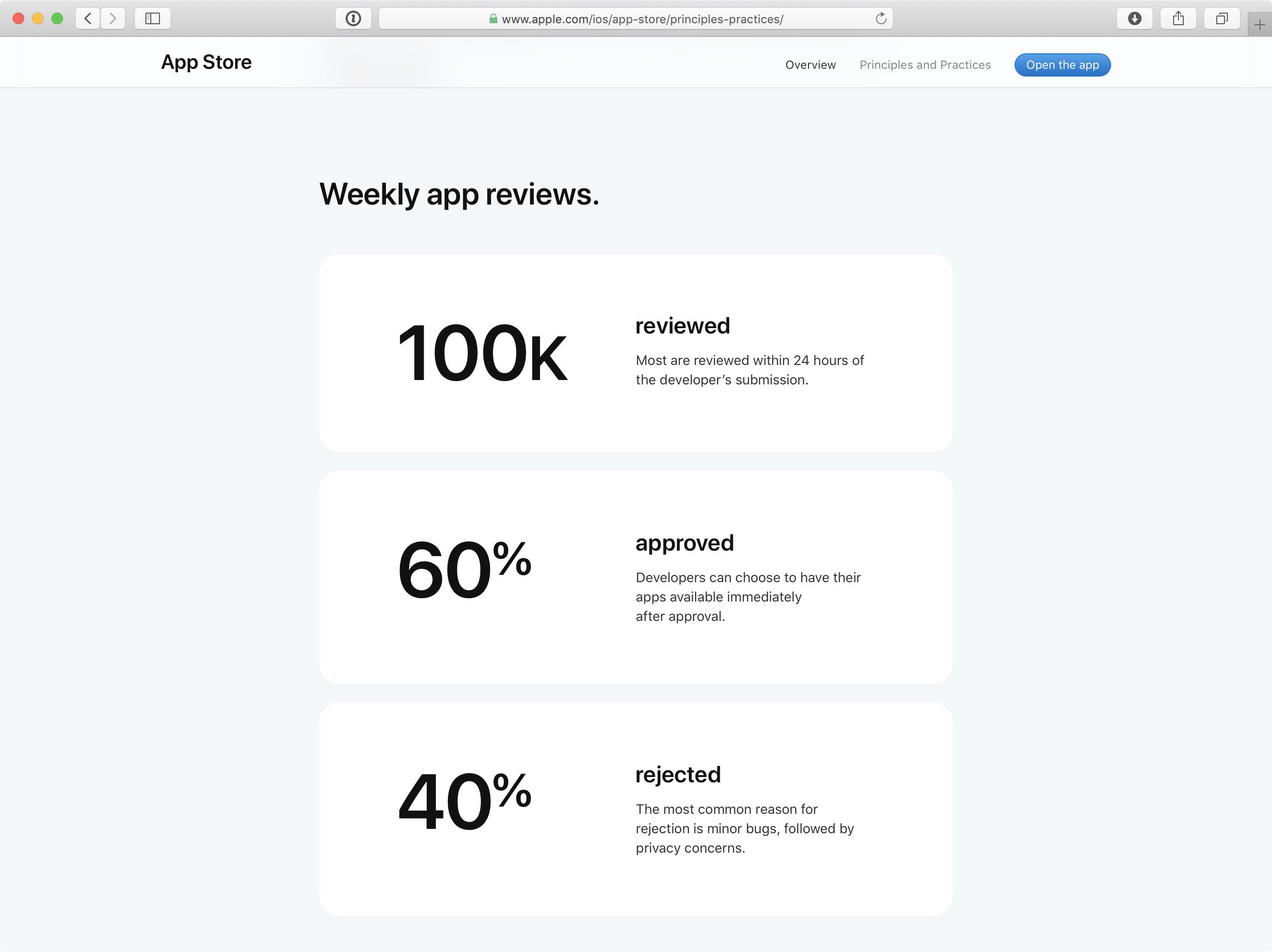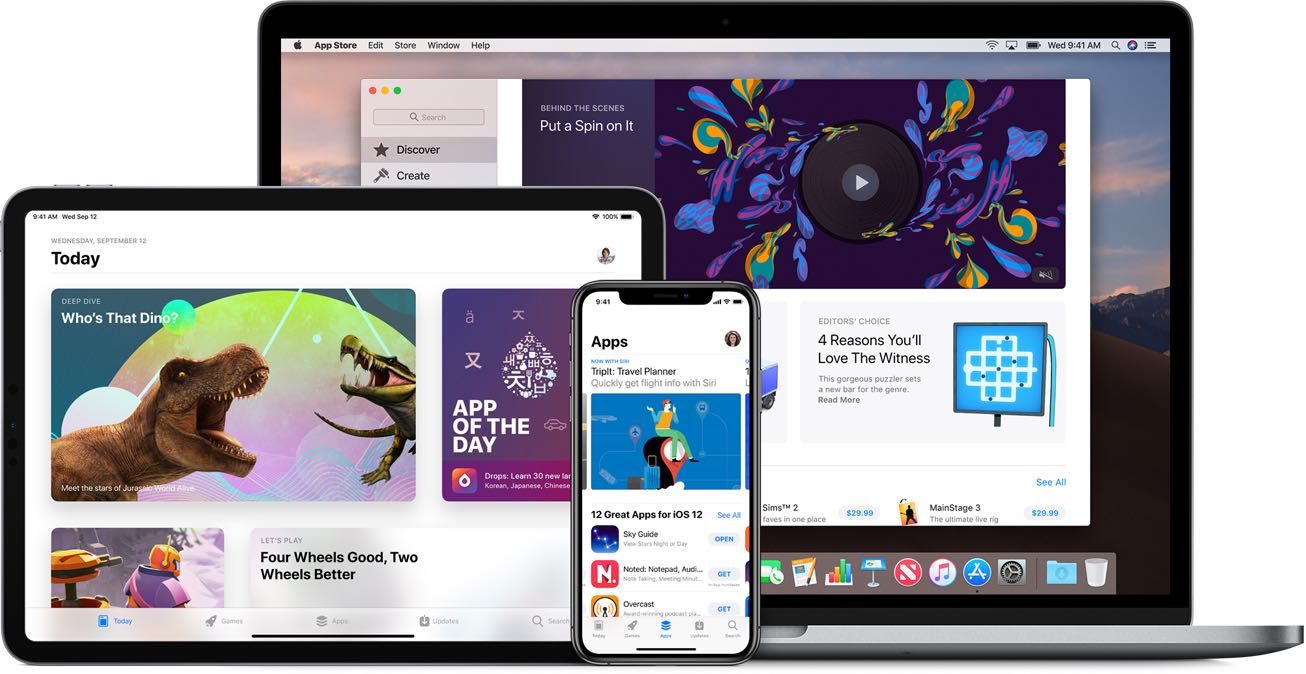
In another defensive move following class action lawsuits and complaints accusing App Store of alleged monopoly, the Cupertino firm today published a new Principles and Practices section on the App Store micro-site, offering some clarity on the store itself and its screening process.
App Store is “dedicated to the best store experience for everyone,” the title has it.
We created App Store with two goals in mind: that it be a safe and trusted place for customers to discover and download apps, and a great business opportunity for all developers. We take responsibility for ensuring that apps are held to a high standard for privacy, security, and content because nothing is more important than maintaining the trust of our users.
And this…
We believe competition makes everything better and results in the best apps for our customers. We also care about quality over quantity, and trust over transactions. That’s why, even though other stores have more users and more app downloads, App Store earns more money for developers. Our users trust Apple — and that trust is critical to how we operate a fair, competitive store for developer app distribution.
“It’s our store. And we take responsibility for it,” reads the sub-section focusing on the approval process and the App Store Review Guidelines that provide guidance to developers on building the best apps.
We believe that what’s in our store says a lot about who we are. We strongly support all points of view being represented on App Store. But we also take steps to make sure apps are respectful to users with differing opinions and reject apps for any content or behavior that we believe is over the line — especially when it puts children at risk. For example, we strictly prohibit any app that features pornographic material, discriminatory references, torture and abuse or anything else in exceptionally poor taste.
The developer guidelines specify that all App Store apps should be safe, provide a good user experience, adhere to Apple’s rules on user privacy, secure devices from malware and threats and use “approved business models.”

The “Approved business models” mention might be interpreted by lawyers in court as a sign that Apple reserves the right to reject apps that rival its own ones, which is exactly what Spotify has argued in its European anticompetitive complaint (Apple responded to Spotify’s accusations with an open letter addressing claims of anticompetitive behavior).
Apple outlines the following eight app categories:
- Free apps (no commission taken)
- Free apps with ads (no commission taken)
- Free apps with physical goods and services (no commission taken)
- Reader apps that serve content purchased outside the app (no commission taken)
- Free apps with in-app purchases (30 percent commission)
- Paid apps (30 percent commission)
- Free apps with subscription (30 percent during the first year, 15 percent thereafter)
- Cross-platform apps (30 percent only on purchases made within the app)
The screening process uses a combination of automated systems and hundreds of human experts, the company explains. The webpage offers some rather interesting stats. For example, Apple’s removed over 1.4 million apps since 2016 because they have not been updated or don’t work the most recent versions of iOS. “This helps unclutter the search for new apps, and makes it easier for users to find quality apps,” reads the post.

Each week, the editorial team reviews a whopping 100,000 apps, with most of the apps being reviewing pithing 24 hours of the submission. About sixty percent of submissions get approved immediately and forty percent are rejected.
developers of rejected apps can revise their app or start an appeal process. The review team makes about a thousand phone calls each week to developers to help them diagnose and resolve the issues that led to rejection. “The most common reason for rejection is “minor bugs”, Apple says, followed by “privacy concerns.”
You can find the new webpage at apple.com/ios/app-store/principles-practices.